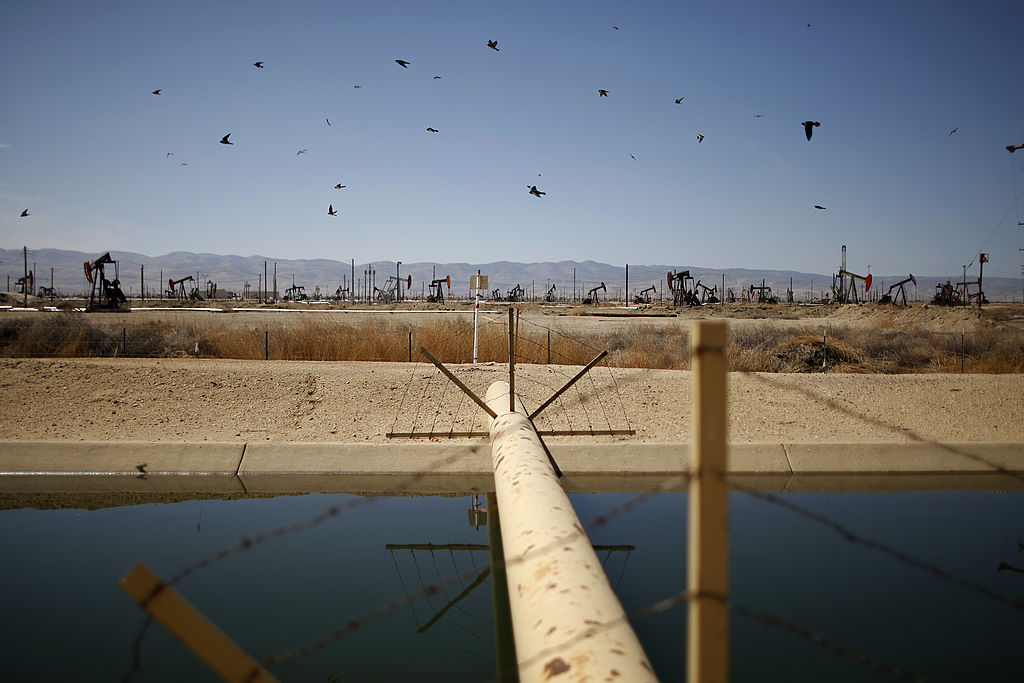
The Trump Administration announced Thursday the rollback of an important environmental regulation on methane emissions that even some of the world’s biggest oil-and-gas companies support. The fact that Big Oil backed a regulation designed to stem emissions of a potent greenhouse gas was immediately wielded by Trump’s critics as evidence of how backward the move must be.
But that reaction missed an important takeaway. The oil-and-gas industry was split on the Environmental Protection Agency (EPA) methane rules, with some prominent companies supporting them and many smaller producers pushing for their elimination. The EPA’s decision to side with a group of smaller fossil-fuel firms shows the influence these obscure companies retain within the Trump Administration—and the power they have to slow climate legislation as addressing the issue grows more urgent.
The split within the industry is partly a matter of scale. The EPA regulation—which required oil producers to implement a range of measures to stop natural gas leaks at new drilling sites, keeping methane from entering the atmosphere—posed little threat to big oil-and-gas firms, which could easily absorb the compliance costs necessitated by the 2016 rule. And because big energy companies sell natural gas, the rule actually just forced the companies to do a better job capturing their own product. “The more gas we keep in our pipes and equipment, the more we can provide to the market,” said Susan Dio, president of BP America, in an emailed statement explaining the company’s support for the measure.
Firms like BP, ExxonMobil and Shell expect that the U.S. and other countries where they operate will continue to pass and implement new climate legislation, and have portrayed natural gas as a better option for the power sector than coal. That argument is undercut by methane emissions, which by some estimates make natural gas no better than coal if leaks aren’t vigilantly policed. Methane is more than 20 times as potent at trapping heat in the atmosphere as carbon dioxide on a pound-per-pound basis in the long term, and leaks of the gas could erase many of the gains the U.S. has made in reducing emissions.
But the EPA rollback wasn’t aimed at helping the big multi-national firms. Instead, the agency said it will help smaller oil-and-gas companies, many of which are drowning in debt and vulnerable to anything that increases their compliance costs. The EPA estimated that the rollback would save companies a total of up to $19 million annually—a small sum for oil majors, but a significant expense for some other firms.
“When you have a regulatory item that’s an existential threat to a group of companies,” says Dylan Tanner, executive director of Influence Map, a non-profit that tracks corporate lobbying on climate, “those companies are the ones that fight the hardest to control it.”
Asked on Thursday about the opposition to the move from some large energy companies, Anne Idsal, assistant administrator of EPA’s Office of Air and Radiation, said “they’re not the only the one” with a position on the issue. “You’ve got small and mid sized companies as well,” she said. “Quite frankly, it’s a want and they certainly indicated” that.
This isn’t the first time Trump has irked big business with regulatory cuts that industry leaders did not want. Earlier this year, the Administration softened vehicle-efficiency standards even though auto companies said it would hurt their business. And the Administration has sought to intervene in energy markets to prop up coal, to the outrage of many energy companies.
The divide in the oil-and-gas industry over methane limits foreshadows a coming conflict within the industry over how to deal with climate change. In recent years, many of the world’s biggest energy firms have rallied around a carbon tax as a climate measure they can support, with some committing millions to lobby for such a policy. These companies acknowledge climate change is real and say they support some — though by no means the most aggressive — measures to solve it.
“Modest climate policy in particular is good for the oil industry,” says Andrew Logan, senior director of oil and gas at Ceres, a nonprofit that pushes companies to address climate change. “It hurts coal, and if you’re an oil-and-gas company, anything that hurts coal is good for you.”
While these companies’ proposed solutions are rejected by climate advocates, they remain more progressive on the issue than many of their smaller counterparts. Independent oil producers generally take the hardest line, opposing nearly any substantive climate policy. And their voices carry weight.
The American Petroleum Industry, a prominent trade organization, supported rolling back the EPA’s methane regulation, arguing that companies should be allowed to “voluntarily” reduce methane emissions. The trade association has no formal position on a carbon tax, but generally opposes new industry regulations. No matter what big oil companies may say about climate change, the views of the smaller firms contribute to the foot-dragging on climate change by Republicans in Congress.
“You’ve got to remember,” Heiti Heitkamp, a former Democratic Senator from North Dakota, told me earlier this year, “those major oil companies are not the industry.”
More Must-Reads from TIME
- Cybersecurity Experts Are Sounding the Alarm on DOGE
- Meet the 2025 Women of the Year
- The Harsh Truth About Disability Inclusion
- Why Do More Young Adults Have Cancer?
- Colman Domingo Leads With Radical Love
- How to Get Better at Doing Things Alone
- Michelle Zauner Stares Down the Darkness
Write to Justin Worland at justin.worland@time.com